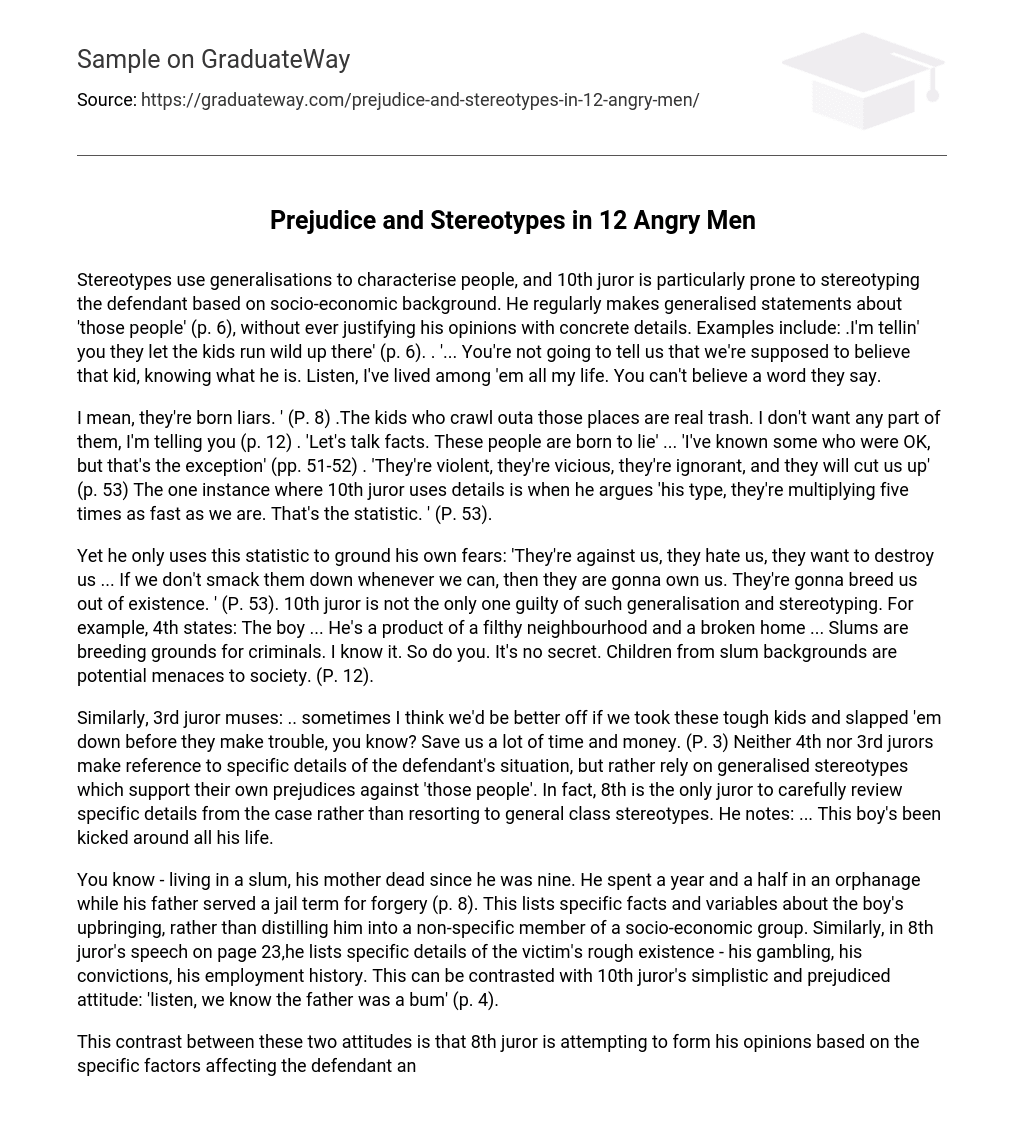The 10th juror relies on stereotypes to classify individuals according to their socio-economic status. This juror consistently makes broad assertions about “those people” without offering concrete evidence to substantiate his viewpoints. For instance, he alleges that “they allow the children to behave uncontrollably in that area” and insists that “you cannot trust anything they state” regarding the defendant, whom he evaluates based on his upbringing.
According to the text, the 10th juror labels certain individuals as “born liars” and “trash” whom he does not want to associate with (p. 8, p. 12). He believes that these people have an inherent tendency towards dishonesty and acknowledges the existence of possible exceptions (pp. 51-52). Additionally, he portrays them as violent, vicious, ignorant, and capable of inflicting harm on others (p. 53). The juror only presents factual information when stating that their population is increasing five times faster than others (p. 53).
The text emphasizes that both the 10th juror and the 4th juror engage in generalization and stereotyping. The 10th juror uses a statistic to support his fears, stating that if they don’t take action, they will be overwhelmed. He further claims that they will be bred out of existence. Similarly, the 4th juror argues that the defendant comes from a filthy neighborhood and a broken home, suggesting that slums are breeding grounds for criminals. He asserts that it is widely known that children from slum backgrounds pose a potential threat to society.
The thoughts on the matter are expressed by both the 3rd and 4th jurors. The suggestion from the 3rd juror is that disciplining troubled kids before any trouble arises could save time and money. Similarly, the 4th juror does not consider specific details about the defendant’s situation but instead relies on stereotypes that match their own prejudices against a particular group of people. In contrast, the 8th juror stands apart from the others by carefully examining specific details of the case rather than resorting to general stereotypes. He highlights that throughout their entire life, the accused individual has experienced mistreatment.
The boy’s upbringing was characterized by adversity, as he grew up in a slum and lost his mother at the age of nine. Additionally, he spent time in an orphanage while his father served a prison sentence for forgery (p. 8). Instead of solely categorizing him based on his socio-economic background, these specific details highlight his personal experiences.
Similarly, on page 23, 8th juror presents specific information about the difficult life of the victim. This includes involvement in gambling, criminal convictions, and employment history. When compared to the biased and oversimplified attitude expressed by 10th juror through his statement ‘listen, we know the father was a bum’ (p. 4), this contrast becomes apparent.
The contrast between 8th juror and 10th juror lies in their attitudes. While 8th juror is striving to base his opinions on the individual circumstances of the defendant and victim, focusing on the humanity involved in the case, 10th juror is satisfied with convicting the defendant based on stereotypes and generalizations about others in similar situations. Once more, Twelve Angry Men supports compassion and condemns prejudice and stereotyping by aligning the more complex viewpoint with 8th juror.





